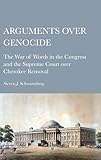In the western Canadian province of Alberta an attack is gathering force on the most fundamental principles essential to the academic viability of universities. This attack has implications that go far beyond the jurisdiction most stereotypically associated with cowboy culture and the lucrative vastness of this province’s oil and gas resources.
As demonstrated by the political genesis of Canada’s current federal government, developments in Alberta tend to lie at the origins of changes with broad ranging implications. The oil-rich province has long been a laboratory for experimentation in right-wing techniques of political manipulation and governance. This experimentation is aimed most often at subordinating the activities of public institutions to the will and desires of the executive branches of private corporations, but especially the Texas-based energy conglomerates that dominate Calgary. Hence the stakes are large in the current drive to make Albertan universities conform to the energy industry’s preferred models of business management. If this insidious power grab succeeds here, it may soon spill over to contaminate the educational policies of other provinces and states.
The Trojan horse in this subversion of higher education is a statute passed into law by Ralph Klein’s Tory government in 2004. The legislation is known as Bill 43, the Alberta Post-Secondary Learning Act (APSLA). With Orwellian embellishments the legislation prepares the way “for a co-ordinated and integrated system approach, known as Campus Alberta.” The new law lays out a template for the standardized governance of all post-secondary institutions in Alberta including universities, community colleges, technical institutes and the Banff Centre. Power is concentrated in the executive branch of these schools. Executive rule is extended in a way that invades the most fundamental bastions of peer review, academic freedom, and collegial governance. For the first time in any North American jurisdiction deans are defined as the Chief Executive Officers of their respective faculties.
This “co-ordinated and integrated system approach” radically transforms the constitutional structure of universities, institutions whose evolutionary development in the West has long been integral to scientific and technological advancement as well as the viability of free and democratic societies. Instead of treating professors as the core constituencies of the academy in terms of the universities’ ability to conduct sound research, publication, teaching and governance, faculty members outside of administration are downgraded to become mere employees of a corporation. In the language of the act, “academic staff means an employee of the board” whereas “each board is a corporation.” With these few words university professors are ushered outside the corporate core of the institutions where they work. Delicate constitutional principles that have evolved over centuries of trial and error are contemptuously brushed aside. “The University” is defined as something other than its academic staff.
The legislation’s preamble flows consistently from the self-interested preoccupations of the oligarchy that has ruled Alberta without interruption for more than a generation. The legislation begins with the assertion that “the Government of Alberta recognizes that the creation and transfer of knowledge contributes to Alberta’s competitive advantage in the global economy.”
This bow to the role of higher learning in the economics of global competitiveness leaves some of the universities’ most important and difficult functions unarticulated. The preamble fails to reckon with the role of universities as institutions with a heavy responsibility to lead society’s quest to differentiate truth from falsehood. The success of this process depends on the ability of university staff to implement the fundamental principles of scholarly meritocracy together with those of academic freedom. The conditions of academic freedom depend heavily on the institution of tenure as an essential requirement for robust and unafraid scholarly inquiry and debate. In the global culture of the academy the healthy advancement and defense of these ideals form primary criteria of academic excellence. And yet it is precisely these principles and ideals that are most undermined by the Alberta government’s drive to expand dramatically the imperatives of executive rule and outside political interference into the internal operations of the province’s universities.
The Confederation of Alberta Faculty Associations responded to Bill 43 by drawing attention to the severe “bias” against academic staff that “permeates” the entire statute. The full extent of this bias is beginning to become clear as university presidents and their deans start to assert the new powers they believe are theirs by virtue of a grant from the provincial legislature. The effects of their combined push to expand the scope of their executive functions often preempts the terms of collective agreements negotiated over long periods of time between university administrations and the bargaining units of university professors. Traditionally these contracts between equal parties have been considered essential to the way that universities define themselves. These instruments have been treated like operating manuals in the day-to-day activities of university constituencies on both sides of the bargaining table.
From more than a decade of experience as Associate Professor in the Department of Native American Studies at the University of Lethbridge, I have my own way of viewing the preemption of negotiated contracts through unilateral exercises of parliamentary supremacy. The Alberta
Post-Secondary Learning Act is similar to the federal Indian Act in that it overrides and thus negates the terms of treaty agreements between allied interests. Hence the ASPLA like the Indian Act is of dubious legality because it treats old constitutional conventions as if they are subordinate to mere statute. The constitution of Canada is very clear in its stipulation that constitutional instruments trump legislative enactments when the two are inconsistent.
I believe my own case here at Alberta’s southernmost university illustrates how dramatically the new legislation undermines constitutional principles long integral to the operation of institutions of higher learning worthy of that name. I believe my case demonstrates that the integrity of peer review has been seriously violated through the provincial government’s implementation of the so-called “co-ordinated and integrated system approach known as Campus Alberta.”
A peer, of course, is a colleague at a similar level of achievement. In the constitutional conventions of universities the process of peer review is meant to link individual universities and their academic staffs to the standards of achievement established by practitioners in larger international networks of scholarly enterprise. Peer review constitutes the form of assessment that invests professors with the primary responsibility to evaluate the academic quality and originality of one another’s work. Peer review is based on the principle that only those with internationally recognized publications and credentials in very specific fields of knowledge are in legitimate positions to judge the academic merits of peers seeking to contribute new knowledge or to acquire new credentials in the same fields. Peer review is the primary protection against the onset of academic provincialism and parochialism that can develop if faculty members are not subjected to periodic evaluations of communities of colleagues whose collective function is to expand the frontiers of worldwide spheres of knowledge.
A university where the integrity of peer review is not respected and upheld is guilty of misrepresentation and professional negligence. Hence the undergraduate and graduate degrees dispensed by such institutions are unworthy of respect let alone prestige. Without peer review a so-called university becomes little more than a place for the distribution of political favors to those teachers and students who can garner the favor of the presidents, deans, and the other executives that imperially command these sad little backwaters. In an institution where the integrity of peer review is demeaned, political cronyism abounds. In such milieus there are no effective checks on the abuse of authority. Nor is there any reliable means to assure that the teachers are genuinely competent or that the material being taught is reflective of the most recent and authoritative scholarship in any given field.
Let me flesh out a few points detailing why my own case at the University of Lethbridge illustrates how the new post-secondary legislation in Alberta menaces the integrity of peer review as this practice has evolved over many generations in the constitution of global academic culture. During the summer of 2006 I was invited by my Dean of Arts and Science to seek a promotion from Associate Professor to Full Professor. I met my Dean’s request by submitting an application where I presented detailed evidence of my academic achievements since I began my professorial career in 1982. For seventeen of my twenty-five years as a faculty member I have worked at the University of Lethbridge. My application of 2006-07 was the first promotion I have ever sought from my current home institution.
The Dean together with the senior professor charged to chair the committee that would decide the fate of my application chose four renowned academics who have gained their own high professional standing outside the University of Lethbridge and outside Alberta. One of the reviewers is a prominent academic in a famous institution in New York. Their job of these four peers was to evaluate the academic quality and originality of my work. The device of choosing assessors from outside the applicant’s home institution serves as an essential safeguard in the conduct of genuine peer review.
All four reviewers wrote positive assessments, a summary of which I have now seen. Their unanimous opinion was that I should be promoted. Their recommendation was mirrored and further elaborated by the report of the academic chair of the promotion committee. With all this work having been done, my Dean unilaterally took it upon himself a mere day before the final committee hearing to “postpone” indefinitely the final determination of the success or failure of my application. At the very hour assigned for the final hearing on my promotion the Dean called me to a meeting where he personally initiated very elaborate disciplinary proceedings against me.
There is no provision in the contract between the administration and the faculty association of the University of Lethbridge for the Arts and Science Dean to have acted as he did in my case. The Dean had the option in the time frame described in the collective agreement to have negotiated with the Chair of the Promotion Committee the insertion into the process of certain documents from my personal file. My Dean, however, opted not to do so. When pressed by my faculty association to give a justification for this Dean’s apparent violation of the clearly outlined procedures of peer review, the U of L President, Dr. Bill Cade, cited the provision in the APSLA that describe the official in question as the CEO of the Arts and Science Faculty. Apparently Dr. Cade believes that the Alberta government has given the deans who report to him new executive capacities to override the collective agreement with our faculty association in whatever way they deem necessary and appropriate. Nowhere in the many definitions outlined in the APSLA do I see any clear description of the powers of a CEO for the purposes of this statute.
I have no way of knowing definitively at this stage if my Dean’s actions are based on his own personal views or if they are other less visible forces operating behind-the-scenes. One thing I can indicate for sure, however, is that in a career that some would describe as controversial I have intermittently brought on the ire of the same government that drafted the APSLA. For instance in 1991 when I was new to the Native American Studies Department I was charged by the Crown of Alberta with allegedly speaking too loudly and thereby creating a disturbance in a public museum. The RCMP released a press release to the media on the matter but when the time came for my day in court the Crown stayed the charges and thereby denied me a chance to tell under oath my side of the story.
The Alberta government’s aborted attempt to criminalize my speech arose from assertive comments I made in September of 1990 about the decision of public officials to deploy excessive police force in efforts by heavily armed special forces units to overwhelm a demonstration by Peigan Indians protesting the building of a provincial irrigation dam up river from their reserve. As it turned out a federal court subsequently agreed with me that the construction of the Oldman Dam was illegal because the edifice’s builders had failed to obtain the required federal environmental assessment. The Canadian Association of University Teachers (CAUT) intervened at this time with a charge of their own. This pan-Canadian confederation of faculty associations accused the Alberta government of abusing the criminal justice system in an effort to intimidate and silence me. The result, the CAUT determined, was that my academic freedom had been infringed.
In 2001, the President of the CAUT charged that my academic freedom had once again been violated, this time by a high ranking official of the National Security Investigation Section of the RCMP. This division of Canada’s federal police force is the same unit that became notorious recently in the barage of news highlighting its role in working with the US government to deport Maher Arar to Syria where this victim was repeatedly tortured. I was interrogated at the U of L for my role in organizing an academic conference in Quebec City that took place concurrently with the summit of 34 heads of government who assembled to consider a US-backed proposal to create a Free Trade Area of the Americas (FTAA). The late Rodney Bobiwash and I designed the event entitled “Americana Indigenismo” to place in the forefront the relationship of Indigenous peoples throughout the Western Hemisphere to the proposed FTAA.
In a letter to the Solicitor General of Canada the president the Canadian Association of University Teachers alleged, “The RCMP’s action cannot be interpreted as anything else than an attempt to intimidate and silence Prof. Hall. In our view, this is a clear violation of Prof. Hall’s civil liberties and his academic freedom.” The CAUT President added, “Prof. Hall is a respected academic whose field includes research on the contemporary conditions of indigenous peoples. He has a fundamental right to express his views, however popular or unpopular they may be, without fear of recrimination or intimidation. This is the basic premise of academic freedom. Police interventions that compromise academic freedom cannot be tolerated.”
Many individuals and groups agreed with CAUT’s stance. The RCMP’s incursion into the academic life of the University of Lethbridge was condemned in an intervention on the floor of the House of Commons by the national leader of the NDP Party. My local faculty association joined CAUT in protesting the incursion of the secret police into our university’s internal affairs. The one contrary voice on this matter was that of Dr. Bill Cade, then brand new in his job as U of L President. After having his lawyer interview the RCMP official who interrogated me, Dr. Cade expressed his opinion that the actions of this official and the Crown agency he represented were “perfectly reasonable.” Dr. Cade tried to reassure his faculty that it is “common for the police to interview people at their place of work.”
I cannot say if the explicit interest of Canada’s National Security Police in my academic life continues to be a factor in the professional difficulties I am presently experiencing. I cannot entirely rule out that possibility, especially given the failure of both CAUT and my local faculty association to follow up their initial statements of protest with meaningful investigations into the background and outcomes of the RCMP’s intervention in my academic and organizational work. Frankly my intuition is that the National Security Police are not directly involved in the sudden transformation of a peer review process into a disciplinary process under the direction of Dean Chris Nicol. Dr. Nicol is one of the deans that was reconstituted by the Alberta government in 2004 as a CEO of an academic unit of Campus Alberta.
It could well be that the events of 1991 and 2001 have nothing to do directly with the executive disruption of the process of peer review at the University of Lethbridge in 2007. It is my contention, however, that the complacent and accepting response of President Cade to the infusion of the culture of secret police into our campus near the onset of his term as U of L’s President has helped open the way to the creation of an atmosphere of duplicity that is inconsistent with the academic effectiveness of our post-secondary institution. Since the police incursion of 2001 I have been ushered from department to department, from review process to review process in ways that are completely dissimilar to the experiences of any other tenured faculty member of whom I am aware. The Kafkaesque nature of this six-year trial by executive order of the Arts and Science Dean has now been renewed with the transformation of a peer review process into something quite different. That transformation, I believe, sheds a telling light on the thinking and intent of the drafters of Bill 43.
As I have argued here, this executive disruption of peer review bodes poorly for the ability of universities to provide the bastions of informed academic dissent that are needed to provide the conditions of genuine pluralism and democracy. Should peer review in my province be understood as a legitimate process under the firm control of academic faculties or is this process on the way to becoming a mere ornament to dress up the executive decisions of Campus Alberta’s CEOs? If such disruptions can take place at the highest level of the credential granting process at my institution and at other Alberta universities, why should those who invest considerable time and money in the pursuit of undergraduate and graduate degrees at these same schools have any confidence in the integrity of system that produces these certificates?










